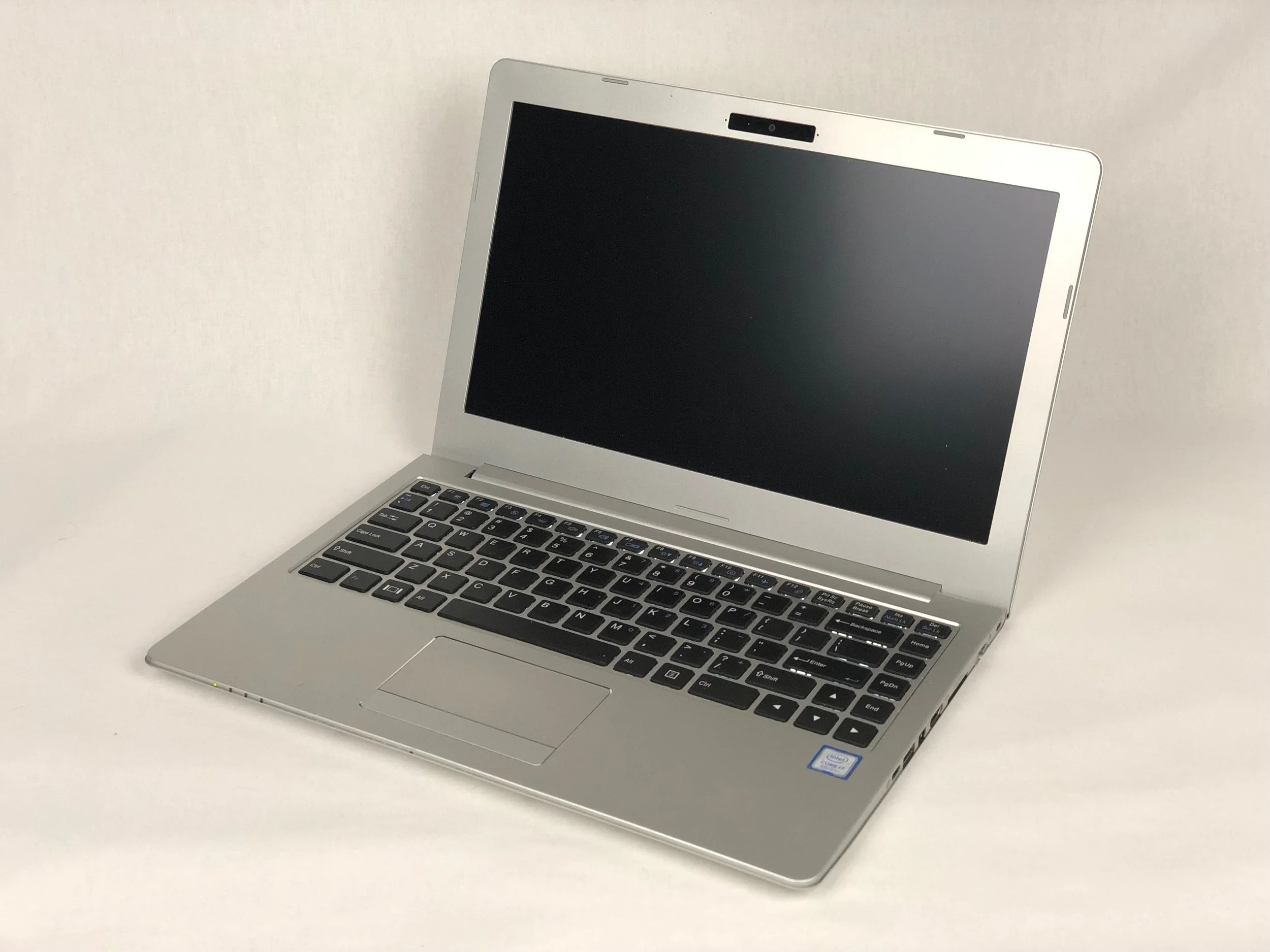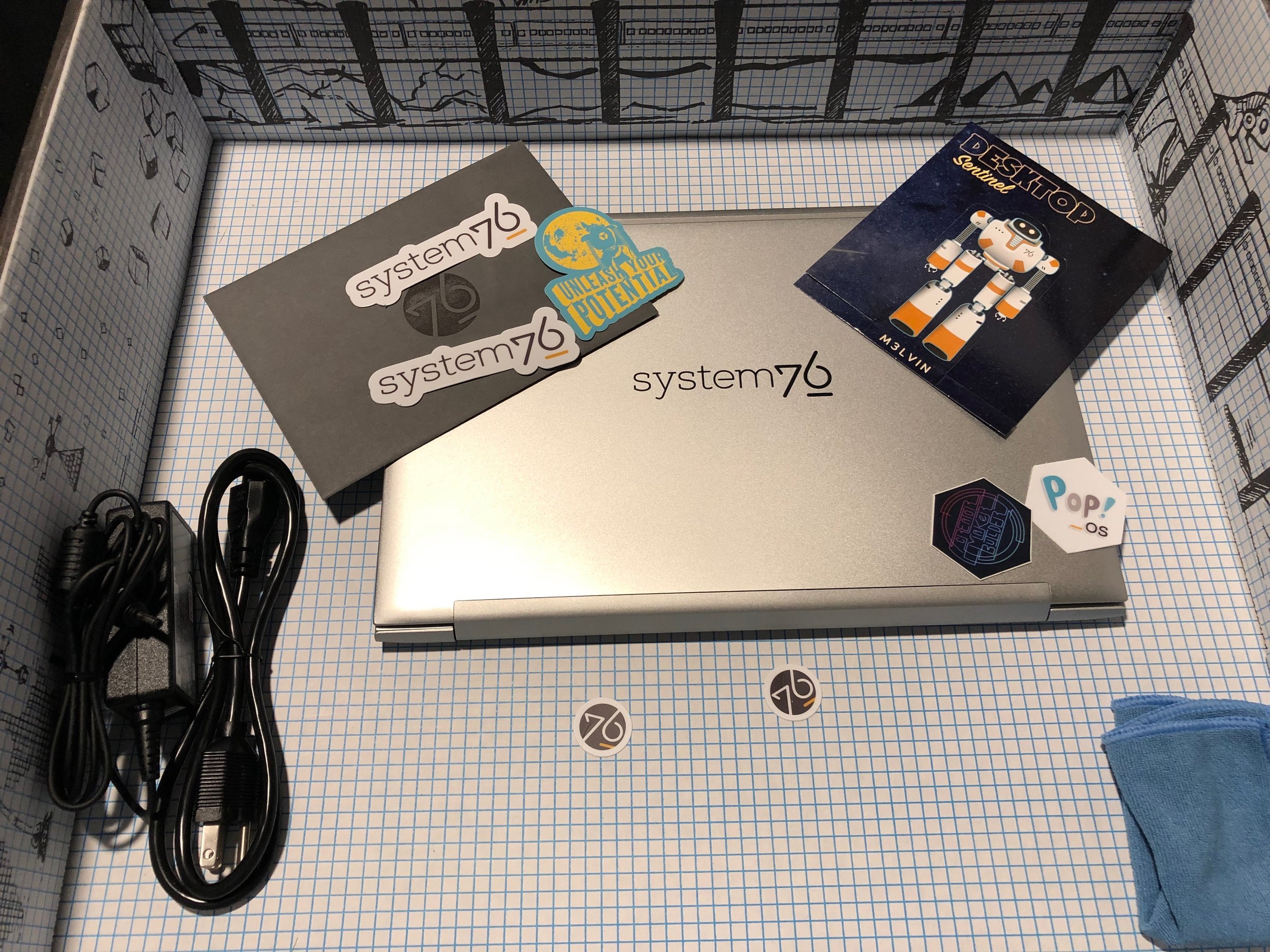My New (old) Laptop
The new laptop looks a lot like the old one.
My last laptop was a sweet System 76 Galago Pro - small, fast, running Linux. After leaving Duo I had to return it, and only after it was gone did I truly realize how much I missed it. At home I’d normally split my time between a slow home desktop system and the Galago Pro, but even then I spent a fair amount of time accessing servers and whatnot, so it wasn't too noticeable. But trips to Starbucks with the iPad were simply not the same, I wanted a decent laptop instead. So in spite of my situation, I decided to go ahead and get an even better laptop - my own System 76 Galago Pro. It has a slightly better screen and slightly better processor, so I am thrilled.
I knew it would fit in my laptop bag just fine, but there were a few other good reasons for me to get it:
Speed. Intel Core i7, runs at 1.80GHz.
RAM. It will hold 32GB of RAM. One should only buy it maxed out, because what sane person wouldn't?
Easy to physically upgrade. The thing is simple to disassemble to get to the insides, say to add a second internal drive. Just make sure that second drive is 7mm in thickness, otherwise you will not get the laptop closed back up (trust me on this one).
Small. It is 13" by 9" by 3/4". T-Rex typing on a plane is not eliminated, but it is drastically reduced.
Aluminum chassis so it weighs less than 3 pounds overall, and it doesn’t feel cheap. It feels solid.
Expansion. 2 USB-A 3.1 plugs, a USB-C plug, and an SD card slot. HDMI and Thunderbolt output.
Communications. Gigabit Ethernet, Intel Wireless-AC with Wi-Fi for, well, everything and Bluetooth 5 support.
Ubuntu pre-installed. Instead of buying something like an HP or Lenovo only to load on Linux, this thing was made for Linux. System 76 maintains and tweaks its drivers for their hardware, making it extremely stable.
Why Linux? Well, most of the programs I want to run, and certainly the ones I want to write, can run on Linux. I have it on several servers already, and have run it for more than a couple of decades.
Why Ubuntu? A couple of jobs ago I worked at MITRE, and I decided to do some personal research into the response times of different Linux distributions when it came to how quick they patched security issues. After all, I was working on the CVE project and we would track when software vulnerabilities became public and when patches became available for download, so it was fairly easy to keep track of who was doing the best job of patching. For the various Linux flavors out there, Ubuntu was quicker at getting patches out the door in nearly every case. Sometimes it was only by a couple of hours, but it made a huge difference to me. I had been running Centos for a while but was getting sick of watching other distros get patches out sometimes days after Red Hat's Centos did. New apps were never available for Centos, so I'd have to load up a lot of new apps as they came out from source. This required me to monitor these software packages individually to ensure I was getting any security patches installed.
Ubuntu on the other hand released a new major version every six months and had tons of newer apps in their huge repositories. Coupled with the quick patching of security bugs, it was a no-brainer to switch to Ubuntu. I am not sure where the speed at patching stands now, but I do know Ubuntu is quick and I have absolutely no complaints.
Like a true nerd, I immediately disassembled it even before powering it up.
While there are multiple vendors that build their own hardware and sell only Linux-based systems, System 76 has been around since 2005 and is privately owned - not Silicon Valley funded. The Colorado-based company seems to be not only quite stable but have garnered a rather positive view in the eyes of many hackers and security pros. When my servers eventually need to be replaced (HP Proliant towers) I'll probably be going with System 76 for them as well.
As a research machine it has turned into a fairly decent choice. Being Linux there are a zillion hacker and security apps that run on it. It is fast enough to handle reverse engineering tasks without waiting for days, heavy data crunching is a breeze (or at least livable), and all of the extra ports come in handy.
The only downside I’ve seen is the battery life is not that great. I can get a few hours at best, and only if I do things like turn down the screen brightness, turn off the backlit keyboard (which I love), and stop running more than five tabs in the Chrome browser (I usually run a couple dozen as a minimum).
I have a few research projects I am working on right now, and this new laptop has figured prominently. It is also handling video editing and music production (more videos with original music coming soon). I can’t recommend it enough, and it is totally worth the money.
Enjoy your Friday, and hopefully you’ll see at least one of those research projects getting completed next week.





